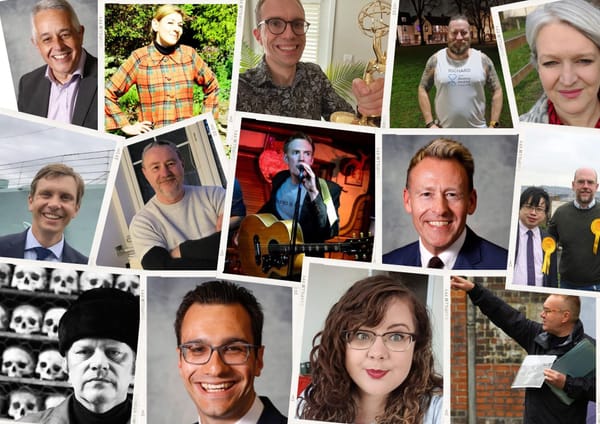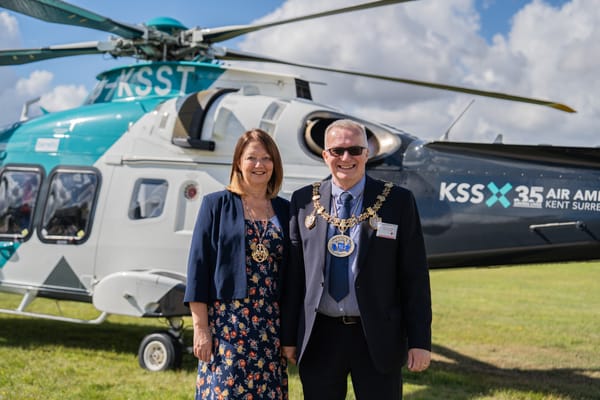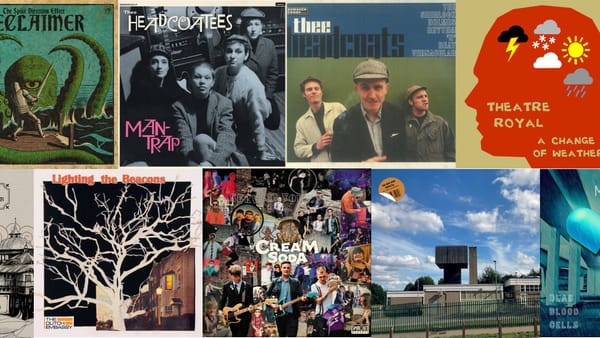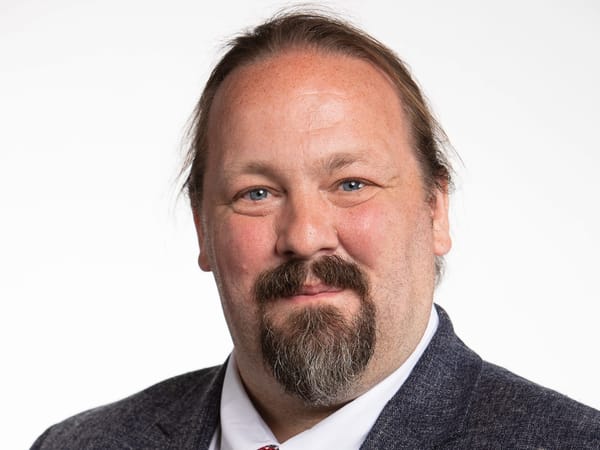“I don't feel my soul is validated unless I'm doing something that that means something to me.”
What Steven asked BAFTA Breakthrough and MidKent College alumni Mdhamiri Á Nkemi
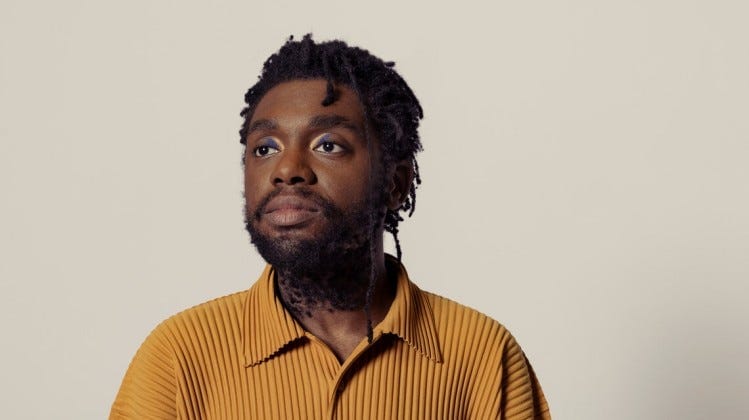
For today’s Sunday interview, Steven went back to MidKent College in a figurative sense to speak to one of his former students. In reality, he met, Mdhamiri Á Nkemi, who now lives and works in Los Angeles, on Zoom. Mdhamiri is now a successful film editor and BAFTA Breakthrough winner who has worked on films like Blue Story, The Last Tree, and Life In A Day 2020. They discuss what originally brought him to Medway, whether film editing is an art form and the short film which gained him awards recognition.

Where were you born?
I was born in London, in Hammersmith Queen Elizabeth Hospital.
What jobs did your parents do growing up?
I grew up just with my mother, who worked kind of freelance as a book editor, but was mostly unemployed. She was studying up until the point where she had my younger sister, and then she couldn't work anymore after that.
What brought you to the Medway towns?
My mother’s studies. She was studying agriculture, a PhD, and then came to Medway to study. I’m forgetting, but there's a whole university there, right?
How did you find school and university?
So, I was home schooled up until I was 16, so I was studying at home, and my mother was my teacher. I think there's a lot of pros and cons. It's very freeing, compared to my peers who went to school at that time. I could focus exclusively on what I wanted to focus on and then I could spend a lot of time doing what I wanted to do and getting excited about the stuff I wanted to get excited about. I guess the flipside, it’s quite isolating. You're not working with others within a group of people and getting that sort of collaborative experience as well.
So, what did you focus on in homeschooling?
At a super young age, I really loved reading. I was like a giant book nerd. I definitely remember going to a book club, and my mother had a huge selection of books at home and I read everything. Stuff I definitely should not have been reading when I was that young, but I read it anyway. So, I thought I was gonna be a novelist and then I discovered filmmaking, and the idea of telling stories through moving pictures, and then became super obsessed with that and then that's basically all I focused on.
So, you were home schooled up to 16 and legend has it you started an MA at 20! How does someone without any qualifications get onto an MA at 20?
A huge amount of luck, and having basically said yes to every project that was offered to me, so I had such a giant portfolio they just couldn't say no. After 16, I went to MidKent College. I spent two years there, and then whilst I was there did the BFI Film Academy, which had a regional programme for 16-19 year-olds. Then out of the people who did the regional courses they picked, I think, 54 in the first year to do this national course, which was at the National Film and Television School, where you spend two weeks getting to make a film with a group of people. Then from that I then went to university. I did an undergrad at Ravensbourne.
Was that a two-year undergrad?
Well actually it was three years, I did it in two (laughs) because after the first year I realised that because I'd been home schooled and was ahead of where everyone else was, I just felt like I would get more experience working, and they offered a two year fast track course where you could work alongside studying. So after the first year, I switched to doing that. I did my second year studying, but then also working as an Assistant Editor at a commercials house in London. Pete, one of the tutors at MidKent, put me in touch with that commercials house because the editor that I was assisting for used to be the assistant for Pete.
So, at Ravensbourne you specialised in editing?
Yes, in post-production.
What was the focus of your MA?
Also editing, so I became very focused. I think that's again the advantage of being home schooled. I'm hyper-focused when I decide I want to do one thing. I think that was the big tool for me, being able to go to a school where I can spend two years just learning to become a better editor and making films with really talented people. Before I decided to apply, when I was working at the commercials house, I was trying to work out whether I did want to continue studying or whether I was to continue working. This whole decision was made when I realised that I wanted to do film rather than commercials. I was learning so much in commercials, but my heart was in telling stories, so the advice I got was that either I start again as a runner but in short film and TV and work my way up that way, or go to film school and hopefully use those connections to springboard myself into the industry. I picked the latter because I'm impatient.
What was your first full-time job?
I guess technically I was working full-time at that commercials place as an Assistant Editor before I went to do my Master’s, and then after my Master’s, I got on a job as an Editor on a feature called Rattlesnakes. The guy who used to run the school, Nik Powell, I remember getting a call from him a week after graduating, ‘Would you like to cut this feature, this independent feature, that I'm producing?’
For anybody here for a casual Medway-based newsletter, they probably won’t appreciate just what a film presence Nik Powell was. So, to get a call from him isn’t something to pass up.
(laughs) Yeah, you don’t say no to this call, there's only one answer.
What would you say at that early stage was the key difference between editing for a commercial and editing for a feature?
I guess the difference is what you are trying to do with it. I think that's the thing that I realised when I was editing commercials. They were super fun and exciting projects and commercials normally have a lot more money than independent film. That was great too and working with cool directors but then ultimately all of this work and craft and skill was going into selling a cake. That was a really demoralising bit of it. We got an ASDA commercial that did super well and then my boss told me ‘ASDA have had to pull the commercial because they've sold out of these cakes.’ It is just all leading up to that. The end goal is trying to make people buy something.
From that grand question of art versus commerciality, is it better to work on a commercial that gets pulled because you sold too many cakes or to work on a feature film that not many people have seen?
I think it depends on you as a person. I know lots of people who work in commercials and they love it and they really love the excitement of it, the speed of it. It's a lot less time commitment. You get to play and work with different kinds of people, but I feel for me, I don't feel my soul is validated unless I'm doing something that that means something to me.

